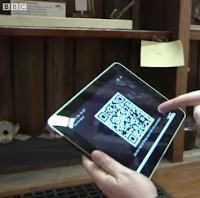Big Data is here, and it changes everything. From startups to the Fortune 500, smart companies are betting on data-driven insight. Strata, a conference organised by O’Reilly was based on three full days of hands-on training, information-rich sessions, and a sponsor pavilion filled with the key players and products. Aimed at bringing together the people, tools, and technologies to make data work the good news is that JISC has written comprehensive report for those who missed it.
The impact that freely available information has had on the learning community is truly profound, with tools like Wikipedia attracting huge audiences (over 365 million readers and growing). We can now access more data than ever – but what do we do with it all? If we want to take full advantage of all this information do we really have the tools we need? And how do we develop these tools in the future?
The internet exerts an unprecedented equalizing force in bringing access to information to everyone on the planet. More information is available (and mainly for free) now than ever before, and yet it is becoming clear that access to information is not enough. The infrastructure to store and share data within sectors is a vital part of the ecosystem, and yet it is often treated as an afterthought. We need a radical change in the way we develop infrastructure in the higher education sector, to ensure that services consumed and funded by the public can do their job as efficiently as possible and at the best possible price.
The research agenda of a university department is closely matched to the skills and goals of the professors and lecturers working in that department. The topics researched in the History department will depend on the specific knowledge and expertise of the History professors at that university. If an external company were to offer to plan their research agenda for them, it would be met with obvious cynicism. And yet the critical tools that these departments rely on are often dismissed as a secondary priority – despite the fact that those very tools define the limits of our ability to explore and learn from the data space that is the foundation of all research…..
You can read the full review (its excellent) over at http://cottagelabs.com/strata-2011-review

